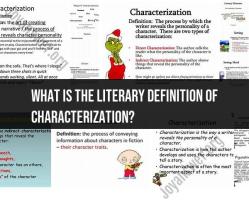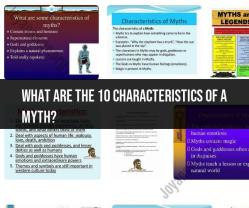Is Othello more evil than Iago?
The question of whether Othello is more evil than Iago is subjective and open to interpretation. Both characters in William Shakespeare's play "Othello" are complex and exhibit morally ambiguous qualities. Their actions are driven by a combination of personal flaws, external pressures, and the manipulation of others. Here are some considerations for assessing the moral complexity of Othello and Iago:
Othello:
Tragic Flaw: Othello's tragic flaw is his susceptibility to jealousy and his inability to see through Iago's manipulation. His actions, driven by intense emotions, lead to the tragic consequences of the play.
Good Intentions: Othello's initial intentions are not inherently evil. He genuinely loves Desdemona and is an honorable military leader. However, his tragic flaw and vulnerability to manipulation lead him down a destructive path.
Remorse: Othello shows remorse and anguish when he realizes the truth about Desdemona's innocence and Iago's deceit. His suicide at the end of the play is an act of self-punishment.
Iago:
Manipulation and Deceit: Iago is the mastermind behind the deception that drives the tragic events. His motives are rooted in resentment, envy, and a desire for revenge. He manipulates others without remorse.
Lack of Empathy: Iago lacks empathy and compassion. He orchestrates the destruction of innocent lives without any apparent remorse or guilt. His actions are driven by a Machiavellian pursuit of personal gain.
Self-Awareness: Iago is aware of his own malicious intentions and revels in his cunning schemes. He takes pleasure in causing harm to others and remains largely unaffected by the suffering he causes.
In assessing their moral complexity, some may argue that Othello's actions are more forgivable because they arise from genuine love and a tragic flaw. On the other hand, Iago's deliberate manipulation, lack of empathy, and enjoyment of others' suffering might be seen as more malevolent.
Ultimately, the moral complexity of these characters is a central theme in the play, and different interpretations may emerge based on individual perspectives. Both characters contribute to the tragedy in distinct ways, and their complexities add depth to the exploration of human nature, jealousy, and the consequences of unchecked emotions.
Character analysis: Is Othello more evil than Iago?
Whether Othello is more evil than Iago is a complex question with no easy answer. Both characters are deeply flawed and capable of great evil. However, there are some key differences between the two that may lead some to conclude that Iago is more evil.
First, Iago's evil is premeditated and calculated. He carefully plans his revenge against Othello, and he enjoys manipulating and tormenting him. Othello, on the other hand, is more impulsive and passionate. He allows his jealousy and anger to consume him, but he does not set out to intentionally harm anyone.
Second, Iago is more sadistic in his cruelty. He enjoys seeing Othello suffer, and he takes pleasure in the pain and destruction that he causes. Othello, on the other hand, is more deeply remorseful for his actions. He realizes that he has made a terrible mistake, and he is truly sorry for the pain that he has caused.
Ultimately, whether Othello is more evil than Iago is a matter of interpretation. There are valid arguments to be made on both sides. However, it is important to note that both characters are deeply flawed and capable of great evil.
Moral complexities: Evaluating the actions and motivations of Othello
Othello's actions are morally complex and can be interpreted in a variety of ways. On the one hand, he is a loving husband and a brave general who is devoted to his duty. On the other hand, he is also a deeply jealous and insecure man who is easily manipulated by Iago.
Othello's jealousy is ultimately his downfall. He allows it to consume him to the point where he is willing to murder his own wife. However, it is important to note that Othello's jealousy is not unfounded. Iago carefully plants seeds of doubt in Othello's mind, and he is able to convince him that Desdemona is having an affair with Cassio.
In the end, Othello's actions are tragic but understandable. He is a complex character who is capable of both great love and great evil.
Iago's deceit: Understanding the psychology of Shakespeare's characters
Iago's deceit is one of the most complex and fascinating aspects of the play. He is a master manipulator, and he is able to convince Othello and the other characters that he is a loyal and trustworthy friend.
Iago's motivations for his deceit are complex and ambiguous. He claims to be motivated by revenge, but it is also clear that he enjoys the thrill of manipulation and the power that it gives him. He is a deeply sadistic character who takes pleasure in seeing others suffer.
Iago's deceit is a reminder of the dangers of manipulation and the importance of being critical of the information that we are given. It is also a reminder that even the most trusted friends can be capable of great evil.
Shades of morality: Interpreting the ethical dimensions of Othello and Iago
Othello and Iago are two of the most morally complex characters in Shakespeare's canon. Both characters are capable of both great love and great evil, and their actions challenge our understanding of morality.
Othello is a tragic figure who is ultimately destroyed by his own jealousy. However, he is also a loving husband and a brave general who is devoted to his duty. Iago, on the other hand, is a purely evil character who enjoys manipulating and tormenting others.
The ethical dimensions of Othello and Iago are open to interpretation. There is no easy answer to the question of whether Othello is more evil than Iago, or vice versa. Both characters are deeply flawed and capable of great evil.
Literary debate: Perspectives on the morality of Othello and Iago
The morality of Othello and Iago has been debated by literary scholars and critics for centuries. There is no consensus on which character is more evil, and there are a variety of perspectives on this issue.
Some critics argue that Iago is more evil because he is premeditated and calculated in his wickedness. He carefully plans his revenge against Othello, and he enjoys manipulating and tormenting him. Othello, on the other hand, is more impulsive and passionate. He allows his jealousy and anger to consume him, but he does not set out to intentionally harm anyone.
Other critics argue that Othello is more evil because he murders his own wife. This is the ultimate act of betrayal, and it shows that Othello is capable of great evil. Iago, on the other hand, does not directly kill anyone. He manipulates Othello into doing his dirty work for him.
Ultimately, the question of whether Othello is more evil than Iago is a matter of interpretation. There are













